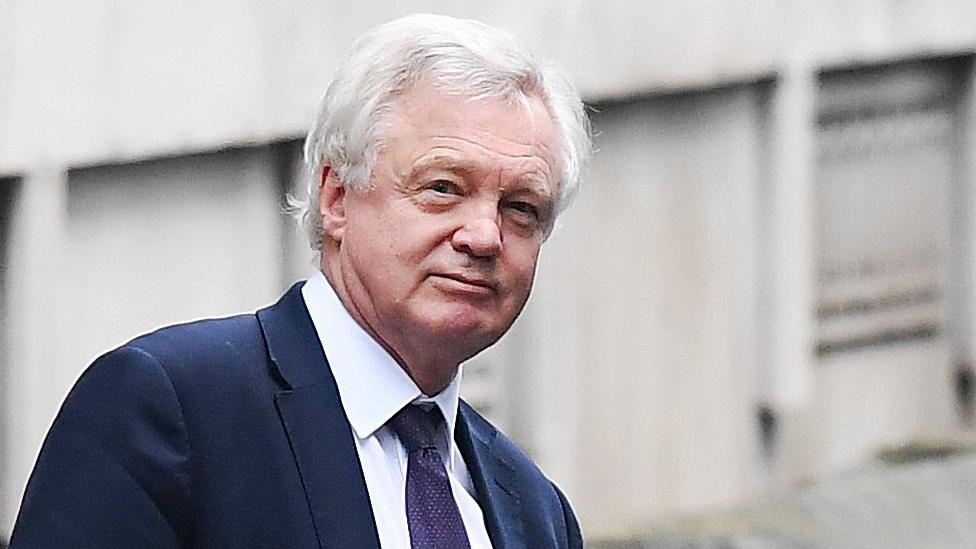Report suggests 'low friction' Brexit border solution
- Published
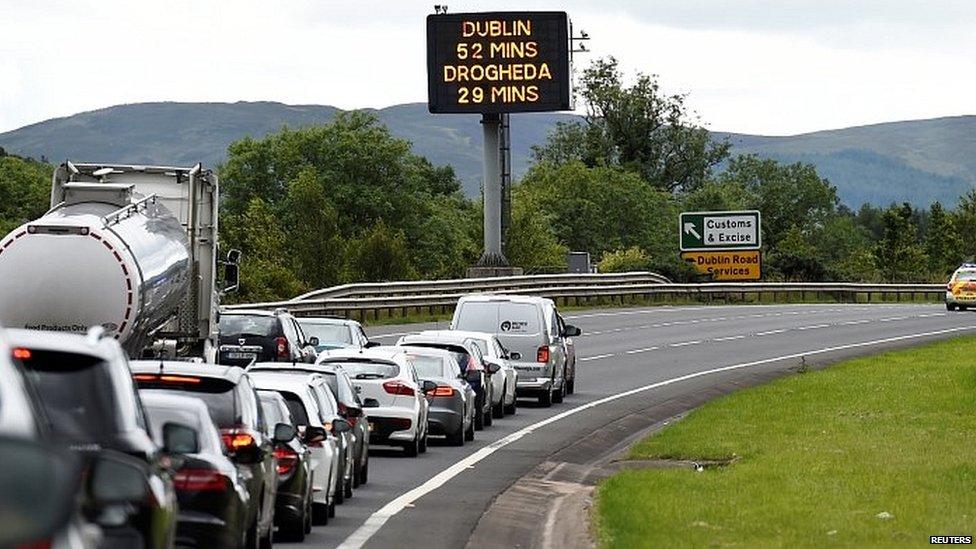
A customs expert has outlined a "low friction" solution for the Irish border after Brexit, which involves a combination of technology and international best practice.
He says there will need to be a customs and border solution, regardless of the outcome of the Brexit negotiations.
He based it on an enhanced version of the Sweden/Norway arrangements.
'Severe impact'
The United Kingdom government has said the country will leave the customs union and single market.
That will necessitate some form of new customs controls between the UK and the EU.
Mr Karlsson says that if the Irish border is handled in the same way as other external EU borders it will have "a severe impact."
That is due to the the volume of goods crossing the border and the lack of infrastructure for border formalities.
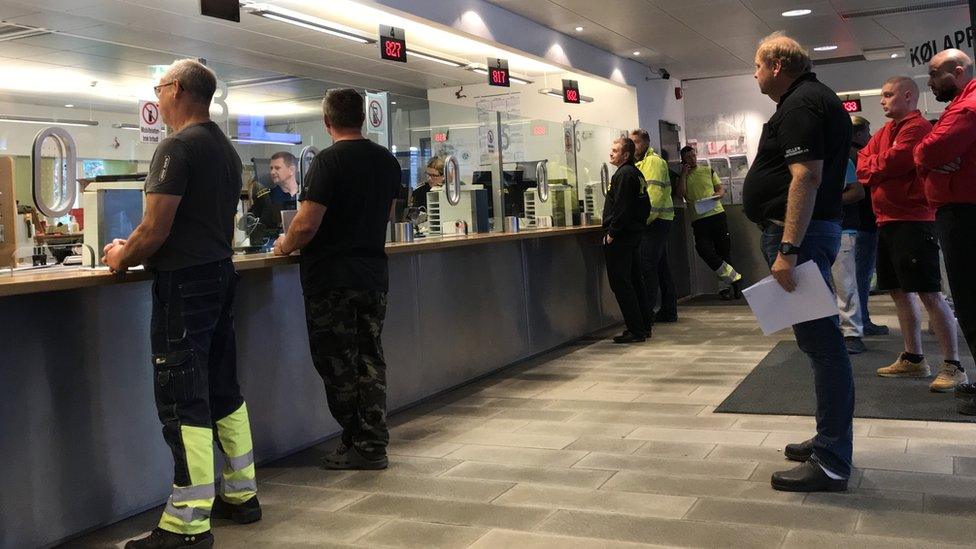
Truck drivers wait for their freight to be processed on the Norway/Sweden border
His report contains some familiar ideas including the use of trusted trader schemes, number plate recognition cameras, customs clearance away from the border, and data sharing between Irish and UK authorities.
Other elements include the use of mobile phone networks to track vehicles, and the use of unique consignment reference numbers to track consignments through a supply chain.
Some elements of his plan, including the use of cameras at unmanned crossing points, are contrary to the what the UK and Irish government have said should happen at the border.
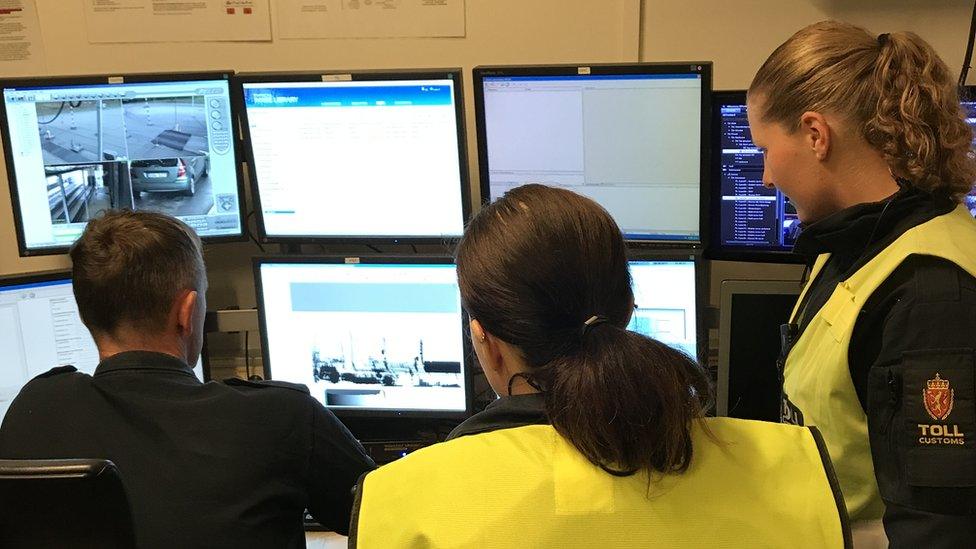
Officers monitor cars at the Norway/ Sweden border
A second report for the parliament from John Temple Lang, a lawyer and former senior EU official,, external has more sceptical views on the operation of a high technology border.
He says a system which relies on devices such as cameras is vulnerable to sabotage, warning: "These devices could be easily put out of action... just as traditional customs posts could be."
Mr Lange also believes that any such system would still "necessitate a considerable degree of physical surveillance" in order to control smuggling.
He raises the cost of such a system and who should pay for it.
"The EU would be unlikely to pay for an expensive system of questionable effectiveness, designed merely to verify that EU requirements were duly complied with."
- Published20 November 2017
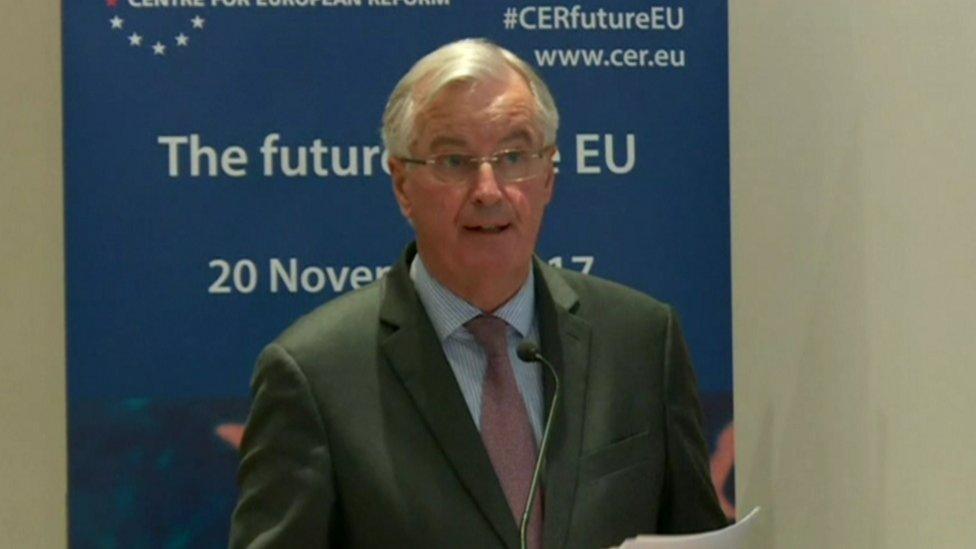
- Published17 November 2017
